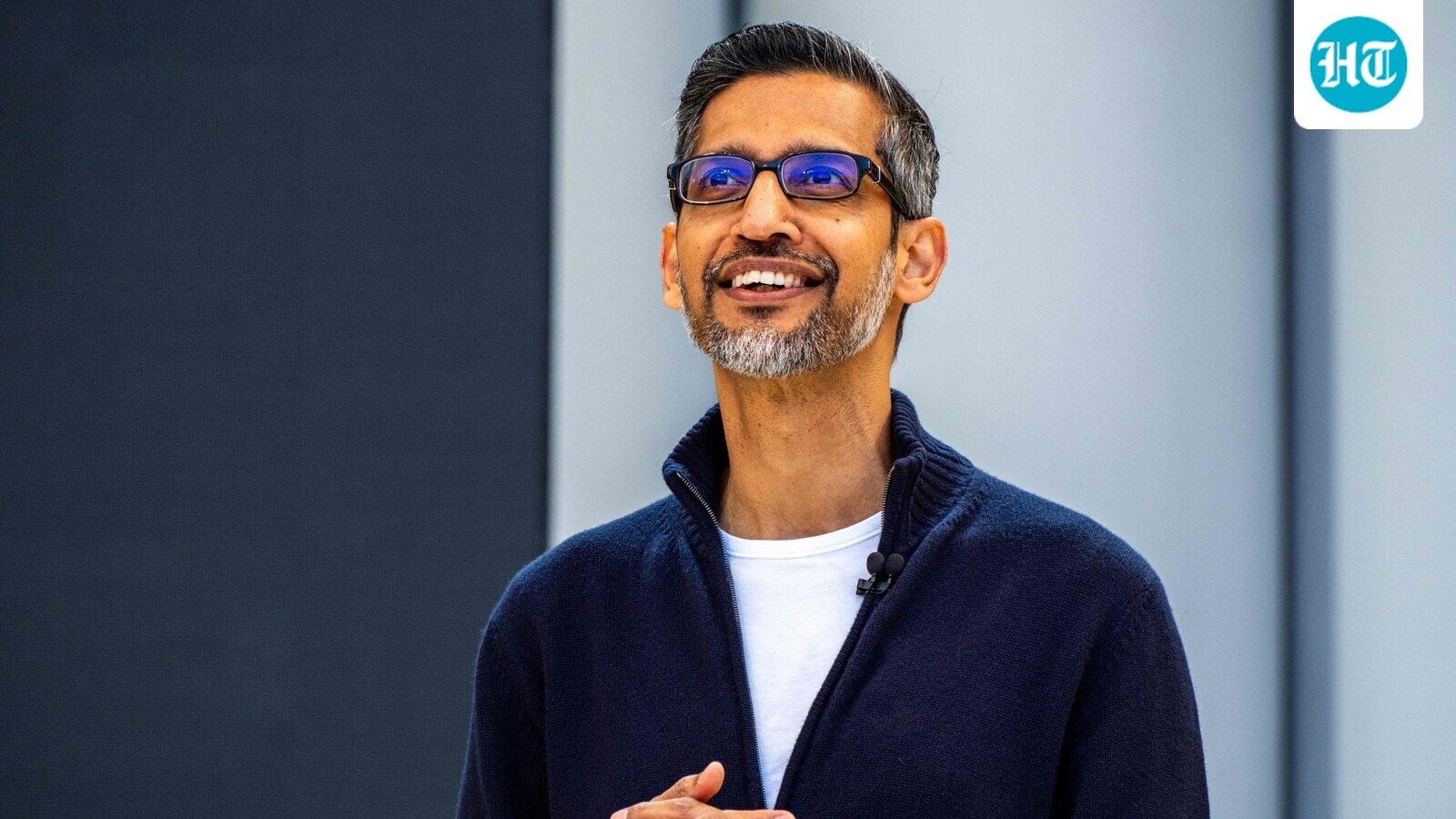‘Feeling lucky this morning’: Sundar Pichai lauds Google’s quantum scientist Michel Devoret for Nobel Prize win

Google CEO Sundar Pichai congratulated physicists Michel Devoret, John Martinis, and John Clarke after the trio was awarded the 2025 Nobel Prize in Physics for their pioneering contributions to quantum mechanics. In a post on X, Pichai wrote, “Congrats to Michel Devoret, John Martinis, and John Clarke on the Nobel Prize in Physics. Michel is chief scientist of hardware at our Quantum AI lab and John Martinis led the hardware team for many years.”
Sundar Pichai said he is ‘feeling lucky’ after Google’s Quantum AI scientist wins Nobel Prize. (AFP)
Pichai went on to praise their decades-long contributions to the field, noting that their research laid the foundation for breakthroughs now happening in Google’s quantum computing projects. “Their pioneering work in quantum mechanics in the 1980s made recent breakthroughs possible, and paved the way for error-corrected quantum computers to come,” he wrote.
The Google chief also said that he recently visited the company’s Quantum AI lab in Santa Barbara, where Devoret is currently the chief scientist of hardware. “I was just at our quantum lab in Santa Barbara yesterday seeing the incredible progress, hope they are celebrating today. Feeling lucky this morning to work at a company that has had 5 Nobel Laureates among our ranks — 3 prizes in 2 years!” Pichai added.
Notably, Devoret, who is also a professor at Yale University, continues to play a key role in Google’s efforts to build scalable and fault-tolerant quantum computers.
John Martinis, on the other hand, is a former Google researcher who led the team that achieved “quantum supremacy” in 2019. Martinis left Google in 2020 and later co-founded Qolab, a quantum computing startup, in 2022.
(Also Read: ‘Living best life, hiking off grid’: Nobel prize winner Fred Ramsdell unreachable after win)
Nobel Prize in Physics
The Nobel Committee recognised Devoret, Martinis and Clarke “for the discovery of macroscopic quantum mechanical tunnelling and energy quantisation in an electric circuit.” The Royal Swedish Academy of Sciences, which announced the award, said the laureates used a series of experiments to demonstrate that the bizarre properties of the quantum world can be made concrete in a system big enough to be held in the hand.
“Their superconducting electrical system could tunnel from one state to another, as if it were passing straight through a wall. They also showed that the system absorbed and emitted energy in doses of specific sizes, just as predicted by quantum mechanics,” the release said.




